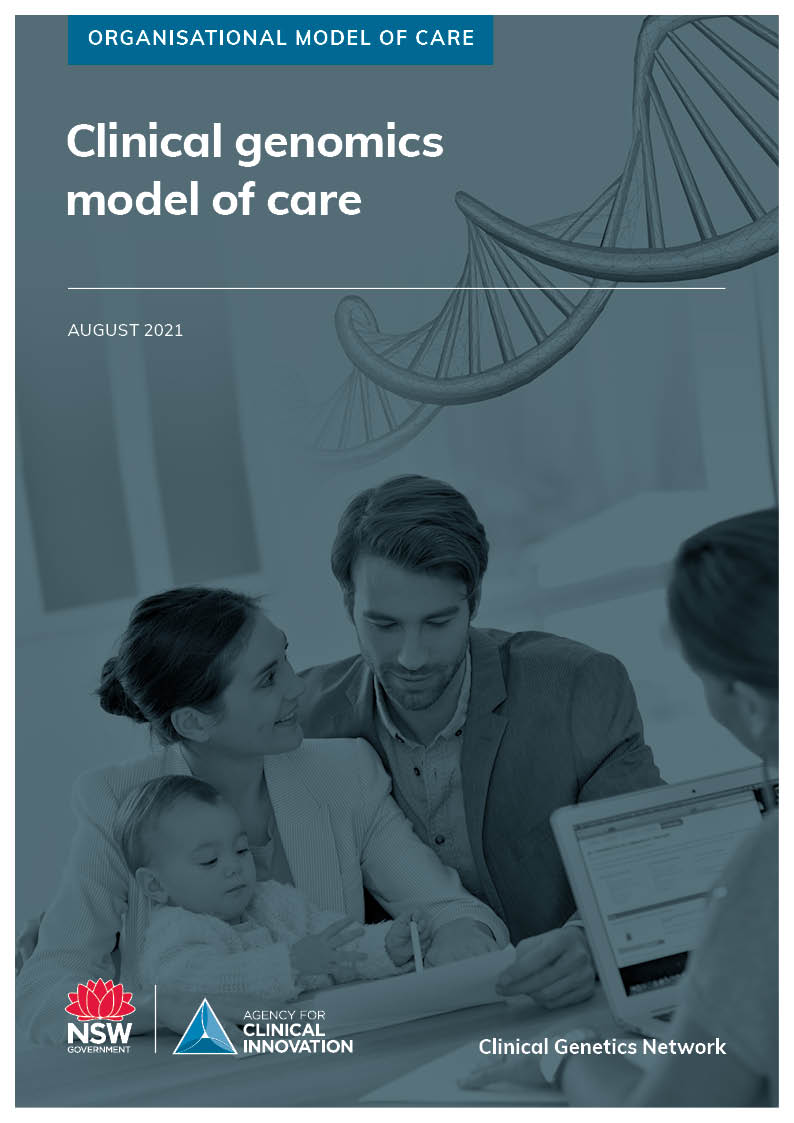Published: August 2021
Model of care
The Clinical genomics model of care guides clinical genomics services to provide equitable access to care for people in NSW.
NSW clinical genomics services are generally delivered via an outpatient setting in NSW public hospitals. Services are provided to paediatric and adult patients, predominantly delivered across three areas:
- general genetics
- cancer genetics
- metabolic genetics.
Download the model of care (PDF 1.9 MB)
Toolkit
A toolkit has been developed to support these health services to implement the model of care. Clinical tools, templates and resources can help to:
- optimise appointment allocation and management
- ensure limited resources can be best used for patients
- support patient-centred care delivery.
At a glance
The model identifies four clinical priority areas to ensure patients receive the right services at the right time: access, timeliness, optimising health and ongoing care.
- Accessible referral criteria
- Standardisation of referral forms
- Shared governance established between metropolitan hubs and rural and regional services.
- Urgent referrals triaged immediately and all within five days
- Clinical prioritisation applied for non-urgent referrals
- Appointment reminders sent to patients at least 48 hours prior
- Patients are offered appointments within clinically recommended timeframe.
- Patient-centred intake process, considers patient’s individual needs and preferences
- Shared decision-making is used when providing patients with information.
- Referrals to community based genetic support groups
- Multidisciplinary clinical genomics care models established
- Patient receives diagnostic and/or management plan in consultation with referring practitioner
- Care transferred back to referring health practitioner for ongoing management.
Background
Clinical genomics specialty services are an emerging and growing field. This field is predicted to be one of the drivers of demand for clinical genomics services into the future.
Over the last two decades, NSW Health clinical genomics services have grown from a boutique sub-specialty into a mainstream clinical specialty, with matching increases in patient demand.
Major advances have taken place during this time in the understanding of the human genome and the association between genetic variation and disease.
Currently services are not always able to keep up with the growing demand. In NSW, patients can wait up to 12 months (or more) to enter some services.
Other challenges include:
- increasing complexity of cases
- inappropriate referrals
- resource and staffing constraints
- competing demands for staff, such as regulation and administration.
